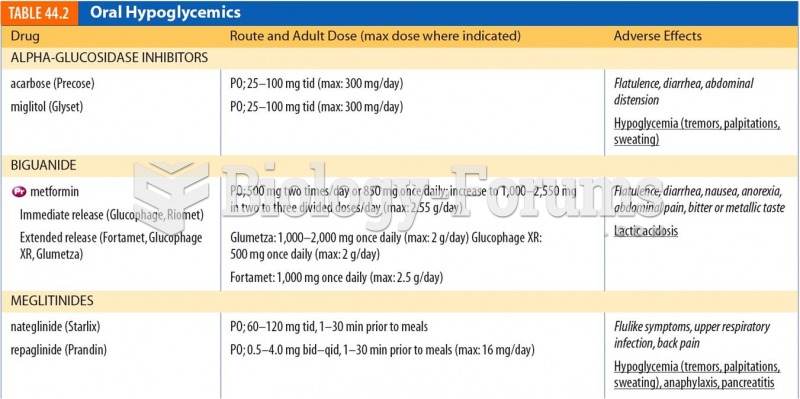Answer to Question 1
D
Feedback
A Incorrect. In trying to give oral medication to an uncooperative child, the nurse's best course of action is not to dare the child to take the medication.
B Incorrect. In trying to give oral medication to an uncooperative child, the nurse's best course of action is not to bribe the child to take the medication.
C Incorrect. In trying to give oral medication to an uncooperative child, the nurse's best course of action is not to coerce the child to take the medication.
D Correct. The administration of oral medication in the pediatric population may be a challenge since the appearance, smell, or taste of the medication may make children reluctant to accept them. Therefore, a matter-of-fact approach, based on developmental level and ability, usually results in cooperation. For example, ask children to administer the oral drug to themselves.
Answer to Question 2
C
Feedback
A Incorrect. Atraumatic care does not refer to caring for children without wounds or assaults.
B Incorrect. Atraumatic care does intend to minimize or eliminate physical and psychological distress for children and their families, especially the avoidance of any harm to the child or family.
C Correct. Three principles provide the basis for atraumatic are: 1) identification of stressors for the child and family; 2) minimizing separation; and, 3) minimizing or preventing pain. The minimization or elimination of physical and psychological distress has been proven to assist the caregiver and the health care professional, and improve the entire experience for all involved.
D Incorrect. Atraumatic care involves all medical procedures, invasive or noninvasive.







